Page 19 • (2,115 results in 0.054 seconds)
-
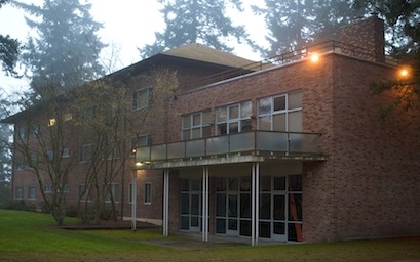
March 19, 2009 Hong Hall: Speaking the language of community (in French, or Chinese, or whatever) Just because you live in Hong International Hall doesn’t mean you have to be fluent, or even conversational, in a foreign language. But it does help to have an interest. After all, most of your fellow hallmates will be talking almost exclusively in a foreign language as they pass each other in the hall. Michael Engh, a junior and resident assistant, lives in the Spanish wing. He tries to speak
-

remodeling the Chapel comes up, the student chorus is always the same: “Please don’t change the feel of the Chapel!” One would think with its bare concrete floors and creaky benches that the students would want new and modern furnishings. But it is the medieval ambiance of the chapel that seems to lend the space a spiritual quality. And well it should. The Chapel and the Rose Window have seen the course of human life as the generations of Lutes have come and moved on to other vocations in the world. The
-
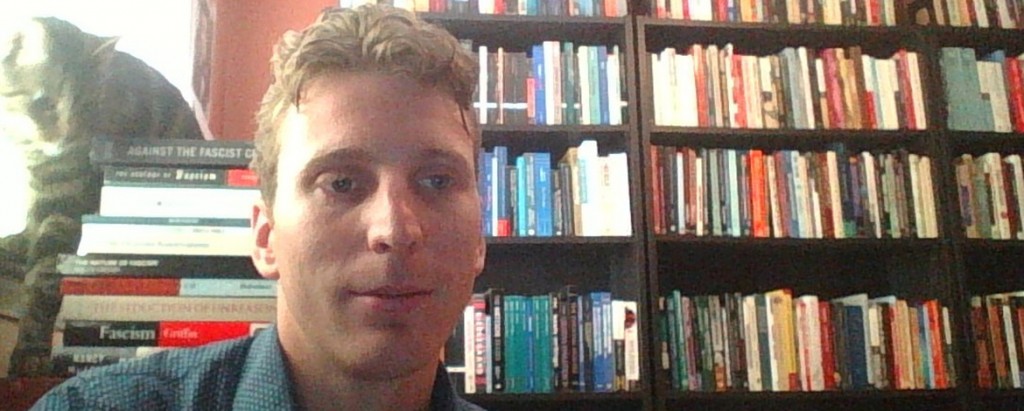
committee members for his PhD thesis. Dr. Arnold’s specializations include Political and Social Philosophy, with a background in 19th and 20th century German and French Philosophy. He is particularly interested in European Philosophers such as Georg Wilhelm Friedrich Hegel and Immanuel Kant. Dr. Arnold was attracted to the systematic thoughts of Hegel as well as Systematic Philosophy in general. Specifically, he was interested in “how Hegel’s metaphysics relates to the other aspects of his thought, i.e
-
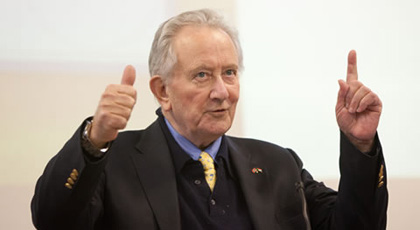
economy is directly linked to the south. With so much yet to accomplish for stability in the region, there is still skepticism about the viability of a Sudan that is now two independent nations, Vraalsen said. “They are people who, up until now, have shown they are masters in their own house,” he said. Peace in Sudan can be the gateway to peace in places like Somalia and the rest of the region, Vraalsen said. “If there’s peace in Sudan, that will help peace in the rest of those countries,” he said
-
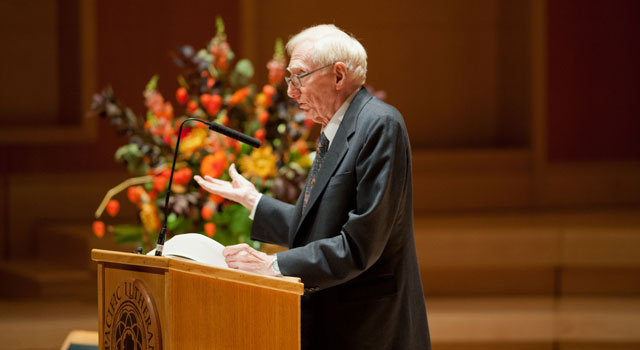
many influential books on the sociology of religion and religion in American life, presented a lecture entitled, “The Modern Project in the Light of Human Evolution,” on Wednesday, Oct. 24, constituting the seventh annual David and Marilyn Knutson Lecture. The lectureship brings to campus nationally recognized scholars who creatively work within the historical, scriptural, and theological sources of a living faith tradition, bringing those sources into dialogue with contemporary questions and
-
and Marc Bekoff’s Species of Mind: The Philosophy and Biology of Cognitive Ethology (MIT 1997). Donald Griffin especially stimulated the emergence of the field in such books as Animal Minds (Chicago 1992) and Animal Thinking (Harvard 1884), arguing that the way to understand animal intelligence was to look not at the stereotypical behaviors of species. Rather, the flexibility, variability, and purposiveness of the individual animal offer insight in animal intelligence. He and other early researchers
-
April 4, 2008 Diverse music, dance styles mark Dance 2008 A vibrant and dynamic series of performances marked PLU’s Dance 2008 in Eastvold Auditorium. The night’s program featured students, alumna and faculty choreographers, and a guest choreographer. The Dance Ensemble performed a collection of dances in the style of jazz, modern, ballet and hip hop. Directed by Maureen McGill, associate professor of dance and theater, the performance marked her 30th academic year at PLU. She presented “Bird
-
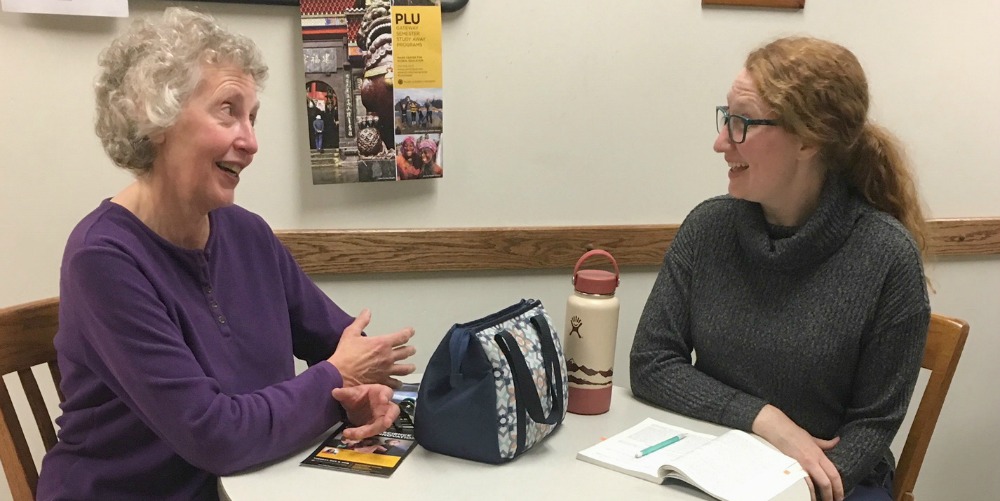
wandered a long way from our original point of departure – history books, plagues, and zombie apocalypses! Though in a way, we found we had actually been answering our own question in a roundabout (typically historical) way, by following the thought-trail of why we are drawn to the topics we find ourselves researching and teaching about. I guess I’ll just have to ask my Early Modern Europe students why they think the Bubonic Plague of the 14th century still has relevance for them today. Read Previous
-
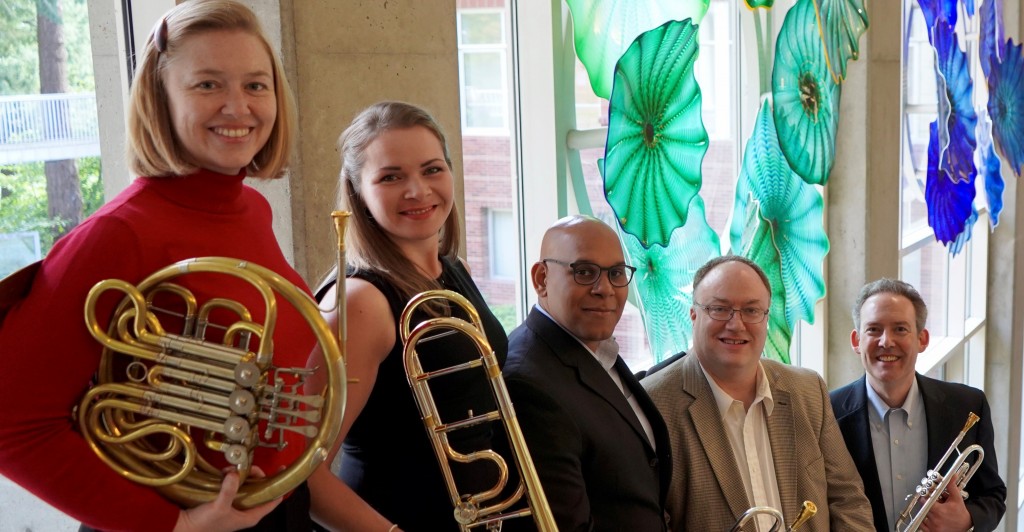
seven movements and represents a major contribution to modern brass quintet literature. Although Jerry’s work was premiered by a different bass quintet, this CD represents the world premiere recording. How did the opportunity for a CD come about? Dr. Jerry Kracht wrote this piece a year or two ago and sent it to me for possible inclusion on a Lyric Brass recital. We performed LUTHER in its entirety on one of our recitals as part of the 500th Reformation celebration. We thought it was important
-
students the keys to guide their college experience and avoid looking back on it after graduation and wondering, “What if?” Students are able to learn what PLU has to offer early in their college careers and begin figuring out what they want to achieve in their time here. It also aims to help students begin the process of discovering their vocation, identity and purpose. The first years are just beginning to understand what the vocation of a student is, how that fits with what they are studying and how
Do you have any feedback for us? If so, feel free to use our Feedback Form.


